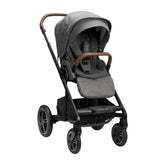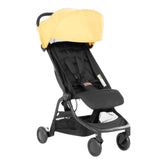Why Doing Chores Is Good for a Kid's Long-Term Success

There’s often debate among parents over whether or not children should have chores. Some argue that those routine, but necessary, tasks around the home should be the parents’ responsibility. After all, kids have tightly packed schedules these days with homework and extra-curricular activities. And some parents want to spare their children the hardships they same endured. Shouldn’t children have the chance to “just be kids” for the time being and worry about responsibilities later? Not according to the research.
Do Chores Make Kids More Successful?
Studies show that giving your children household responsibilities may be one of the most important things you’ll do as a parent. Children who perform chores learn accountability and essential life skills that will stay with them throughout adulthood. Let’s take a closer look at why chores are good for kids, along with some age-appropriate tasks they can take on.
Why Is It Important for Kids to Help With Chores? The Advantages of Kids Doing Chores
Though having your kids pitch in around the house may (or may not) lighten the load a bit for you, it’s definitely not the only reason to assign them chores. The research says it’s also good for them. A famous long-running study from Harvard analyzed the childhood psychosocial variables and biological processes that predicted health and well-being later in life. Researchers discovered that readiness and ability to work in childhood (demonstrated by participating in chores, working part-time, or participating in sports) was a more accurate predictor of adult mental health than social class, family issues, or other factors.
Are Kids Who Do Chores More Likely to Be Successful Later in Life?
Other research over the years also makes a compelling case for having children do chores. A University of Minnesota analysis of data gathered over a 20-year span concluded that the best predictor of success in young adulthood, when it comes to education completion, career path, and personal relationships, was whether they had begun doing chores at an early age — as young as 3 or 4. Children who do chores may show increased self-esteem, be more reliable, and be better prepared to deal with frustration, hardship, and delayed gratification. This can lead to greater success in school, work, and relationships.
There is tremendous variance among mindsets and attitudes when it comes to chores. Some kids love helping out, and others don’t. Nonetheless, according to the American Academy of Child and Adolescent Psychiatry, there are huge benefits in having your child participate in age-appropriate chores:
- Learning organizational skills
- Learning accountability within the family
- Developing time management skills
- Discovering how to manage play and work from an early age
- Giving them a chance to succeed (particularly for a kid who has other challenges)
- Laying a good foundation for living independently

Tips for Introducing Chores
If your children don’t have regular chores now, it’s not too late to get them started. Here are a few tips from the American Academy of Child and Adolescent Psychiatry on how to introduce chores to your household:
- Establish fair, straightforward expectations. Tell your child precisely what they need to do. For instance, "Please unload the dishwasher before breakfast."
- Set a consistent routine. For instance, "Make up your bed every morning."
- Don’t alter rules and expectations. This can cause confusion, chaos, and frustration.
- Assign younger children small, painless tasks. Make bigger chores fun and collaborative. Incorporate songs or games if possible.
- Consider using a star chart or reward system with clear goals to keep track of progress and promote good behavior.
- Set a good example. Kids will more easily learn to pick up after themselves and keep their space tidy if they see others doing it.
- Provide positive feedback and support, and express your pride when a chore is complete. For instance, "Great job picking up your clothes!"
Keep in mind that there’s a learning curve when it comes to chores. Doing it yourself is often faster in the beginning, especially when children are young. However, helping your child learn these skills will be more helpful in the long run. Be patient. Choosing a chore that is appropriate for your child will increase the likelihood of success.

Chore Ideas for Preschoolers
You can give preschool children simple chores, like picking up after themselves. They can also start learning how to tidy their room and put their dishes away after eating. Chore charts with pictures are helpful at this age (since many children this young can’t yet read). Sticker rewards are especially motivating to preschoolers. Chore ideas may include:
- Helping put away toys and groceries
- Dressing themselves with help
- Helping feed pets
- Making their beds (don’t expect perfection)
- Helping clear the table after dinner

Chore Ideas for School-Aged Children
School-aged children should continue to clean up after themselves, as well as begin to assume more complex chores. Teach them how to do each new task in a step-by-step manner. Praise their efforts and encourage them to keep practicing. A few chore ideas for children this age may include:
- Wiping tables and counters
- Putting laundry away
- Sweeping floors
- Loading and unloading the dishwasher
- Helping with meal preparation
- Packing their own lunch for school
- Changing their sheets
- Cleaning the kitchen or bathrooms
- Doing yard work
Chore Ideas for Older Children and Teens
Older kids and teenagers should have chores that ready them for the real world. There’s no need to reward an older child for every chore they complete. At this age, picking up after oneself is part of pitching in and helping the family. Paying an allowance for doing additional chores is a good way to introduce financial responsibility and money management. Chores for older children and teens may include:
- Washing the car
- Helping out with younger siblings
- Helping with grocery shopping
- Running errands
The Takeaway on the Benefits of Kids Doing Household Chores
When kids are expected to roll up their sleeves and help out and to ask how they can contribute to the household, it creates a mindset of teamwork and cooperation in other settings, like school or the workplace. Not giving children chores robs them of the pride of putting in the effort and accomplishing a task.
Sometimes it can be challenging to get your child to do chores. If your child is unable or unwilling to do chores, try to understand the reasons why. If struggles continue to escalate, it may be a sign of other conflicts or issues that require attention. Talk to your pediatrician and ask for a referral to a qualified mental health professional.









